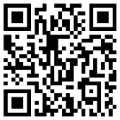Blended Learning between Team Games Tournament and Web-Based Module to Improve Students’ Competency of Light Vehicle Programs
Abstract
Education plays an important role in printing Human Resources (HR), including
vocational schools. Learning methods and the availability of learning resources becomes very important and needed. The existence of the internet needs to be utilized to create innovative and interesting learning. The research method used is Classroom Action Research (CAR) which aims to determine the effect of the implementation of the blended learning team games tournament (TGT) and the Web-Based Module as an Effort to Increase the Achievement of Student Competencies in the Light Vehicle Engineering Program. The study was onducted in class X TKR 1, SMKN 1 Singosari in the 2017-2018 school year as many as 32 students. The treatment is given consisted of Action 1and Action 2 by observing the activities of the teacher, students, and post-test scores. In the pre-action, the percentage of completeness obtained was 67.74 percent while the Minimum Completeness Standard was 75 percent. After action 1, the achievement of student competence reached 93.5 percent with an average value of 86.53. While in Action 2, student learning completeness was 87.09 percent with an average value of 81.3. From the two actions implemented, it is found that the average results are above the minimum standard of a predetermined value of 75. The application of blended learning can improve student learning outcomes because the learning process is more interesting, active and innovative. students are more enthusiastic and happy with the learning model. With the tournament, students are trained to be responsible, care for friends, study independently and compete healthily. The application of Blended Learning team games tournament (TGT) and Web-based modules are recommended to be applied to other subjects because it is proven to be able to increase the achievement of student competencies and to be creative, innovative and interesting method.
Full Text:
PDFReferences
A. Kayahan Karakul, “Educating labour force for a green economy and renewable energy jobs in Turkey: A quantitave approach,” Renew. Sustain. Energy Rev., vol. 63, pp. 568–578, 2016.
M. Hashim and F. Hameed, “Human resource management in 21st century: issues & challenges & possible solutions to attain competitiveness,” Int. J. Acad. Res. Bus. Soc. Sci., vol. 2, no. 9, p. 44, 2012.
G. Chen and J. Zhang, “A case study of factors influencing the learning of engineering students,” World Trans. Eng. Technol. Educ., vol. 12, no. 2, pp. 176–180, 2014.
F. J. Tasiam, D. Kustono, P. Purnomo, and H. Elmunsyah, “Fostering pedagogic competence of electrical engineering vocational high school teacher in facing ASEAN economic community,” Eur. J. Educ. Stud., vol. 3, no. 8, pp. 558–571, 2017.
H. Kauffman, “A review of predictive factors of student success in and satisfaction with online learning,” Res. Learn. Technol., vol. 23, 2015.
B. Hariadi and T. Wurijanto, “Influence of Web Based Cooperative Learning Strategy and Achiever Motivation on Student Study Outcome,” Int. J. Eval. Res. Educ., vol. 5, no. 3, pp. 189–199, 2016.
R. A. Aulyawati and A. A. Sujadi, “Implementasi Pembelajaran Kooperatif Tipe TGT (Teams Games Tournament) Untuk Meningkatkan Minat dan Prestasi Belajar Matematika Siswa Kelas VIII C SMPN 2 Sanden Bantul,” UNION J. Ilm. Pendidik. Mat., vol. 4, no. 3, pp. 419–426, 2016.
R. Rahmawati, “Improving English speaking ability using the Team-Games-Tournament technique,” English Educ. J., vol. 8, no. 1, pp. 1–13, 2017.
R. E. Slavin, Cooperative Learning; theory, research, and practice, Second edi. Massachusetts: Allyn & Bacon, 2010.
A. Veloo and S. Chairhany, “Fostering students’ attitudes and achievement in probability using teams-games-tournaments,” Procedia-Social Behav. Sci., vol. 93, pp. 59–64, 2013.
M. M. V. Wyk, “The effects of Teams-Games-Tournaments on achievement, retention, and attitudes of economics education students,” J. Soc. Sci., vol. 26, no. 3, pp. 183–193, 2011.
A. Salam, A. Hossain, and S. Rahman, “Effects of Using Teams Games Tournaments (TGT) Cooperative Technique for Learning Mathematics in Secondary Schools of Bangladesh,” Malaysian Online J. Educ. Technol., vol. 3, no. 3, pp. 35–45, 2015.
DOI: http://dx.doi.org/10.17977/um010v2i12019p001
Refbacks
- There are currently no refbacks.
 | Letters in Information Technology Education (LITE) |

1.png)
1.png)
4.png)
1.png)
.png)
.png)

3.png)
1.png)
1.png)

3.jpg)